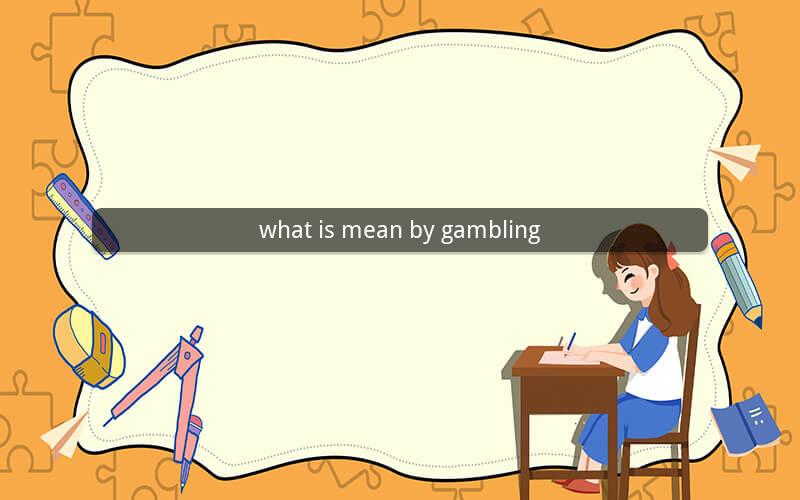
Understanding Gambling: A Comprehensive Guide
Table of Contents
1. Definition of Gambling
2. Types of Gambling
- Traditional Casino Games
- Sports Betting
- Lottery and Raffles
- Online Gambling
3. History of Gambling
4. The Psychology Behind Gambling
- The Role of Dopamine
- The Illusion of Control
- The Gamblers' Fallacy
5. The Social and Economic Impact of Gambling
- The Positive Economic Impact
- The Negative Social Consequences
6. Legal Aspects of Gambling
- Regulation and Licensing
- Age Restrictions
- Problem Gambling and Responsible Gambling
1. Definition of Gambling
Gambling refers to the act of betting money or something of value on an event with an uncertain outcome, with the primary intent of winning additional money or material goods. It involves risk, chance, and the anticipation of gain. While gambling can be a form of entertainment, it can also lead to addiction and serious consequences.
2. Types of Gambling
2.1 Traditional Casino Games
Traditional casino games include games like blackjack, roulette, poker, and slot machines. These games are played in land-based casinos and require players to use chips or tokens to place bets.
2.2 Sports Betting
Sports betting involves placing bets on the outcome of a sporting event. It can be done legally in some countries and has become increasingly popular with the advent of online betting platforms.
2.3 Lottery and Raffles
Lottery and raffles are forms of gambling where participants purchase tickets with the hope of winning a prize. The prizes can range from small amounts of money to large jackpots.
2.4 Online Gambling
Online gambling refers to the practice of placing bets over the internet. This includes online casinos, sports betting, and poker websites. Online gambling has gained significant popularity due to its convenience and accessibility.
3. History of Gambling
Gambling has been a part of human culture for thousands of years. Ancient civilizations, such as the Egyptians, Romans, and Greeks, engaged in various forms of gambling. Over time, gambling has evolved, with new games and technologies being introduced.
4. The Psychology Behind Gambling
4.1 The Role of Dopamine
Dopamine is a neurotransmitter in the brain that plays a crucial role in the pleasure and reward system. When people win at gambling, dopamine is released, creating a sense of euphoria and pleasure.
4.2 The Illusion of Control
Gambling often gives players the illusion that they have control over the outcome of the game. This illusion can lead to increased risk-taking and the development of problem gambling.
4.3 The Gamblers' Fallacy
The gamblers' fallacy is the belief that past events can influence the outcome of future events, even when they are independent. This fallacy can lead to poor decision-making and increased losses.
5. The Social and Economic Impact of Gambling
5.1 The Positive Economic Impact
Gambling can have a positive economic impact on the communities where it is legal. It generates revenue for governments, creates jobs, and supports local businesses.
5.2 The Negative Social Consequences
Gambling can also have negative social consequences, including addiction, financial problems, and family breakdowns. Problem gambling can lead to significant harm to individuals and society.
6. Legal Aspects of Gambling
6.1 Regulation and Licensing
Gambling is subject to strict regulation and licensing requirements in many countries. This helps ensure that gambling activities are conducted fairly and responsibly.
6.2 Age Restrictions
Most jurisdictions have age restrictions on gambling, with a minimum age of 18 or 21 being common. These restrictions are in place to protect young people from the potential harms of gambling.
6.3 Problem Gambling and Responsible Gambling
Problem gambling is a serious issue that can have significant consequences for individuals and society. Responsible gambling initiatives aim to promote safer gambling practices and provide support for those struggling with problem gambling.
Frequently Asked Questions
1. What is the difference between gambling and betting?
- Gambling and betting are often used interchangeably, but technically, gambling involves more than just betting. It includes the element of chance and the anticipation of gain.
2. Can gambling be addictive?
- Yes, gambling can be addictive, and it is estimated that millions of people worldwide struggle with problem gambling.
3. Is online gambling legal in all countries?
- No, online gambling is legal in some countries, while others have strict laws against it. It is important to check the legal status of online gambling in your country before participating.
4. How can I tell if I have a problem with gambling?
- Signs of problem gambling include chasing losses, lying about gambling activities, and prioritizing gambling over other responsibilities.
5. Are there any treatment options for problem gambling?
- Yes, there are various treatment options available for problem gambling, including counseling, support groups, and therapy.
6. What is the most popular form of gambling?
- The most popular form of gambling varies by country, but traditional casino games, such as slots and poker, are often the most popular.
7. How does gambling affect the economy?
- Gambling can have both positive and negative effects on the economy. It can generate revenue for governments and create jobs, but it can also lead to financial problems and social issues.
8. What are the odds of winning the lottery?
- The odds of winning the lottery are extremely low, with some lotteries offering odds of millions to one.
9. Can I make a living by gambling?
- While it is possible to make a living through gambling, it is important to note that the majority of professional gamblers do not succeed.
10. Is it better to play online or in a land-based casino?
- The choice between online and land-based casinos depends on personal preferences. Online gambling offers convenience and a wide variety of games, while land-based casinos offer a more immersive experience.